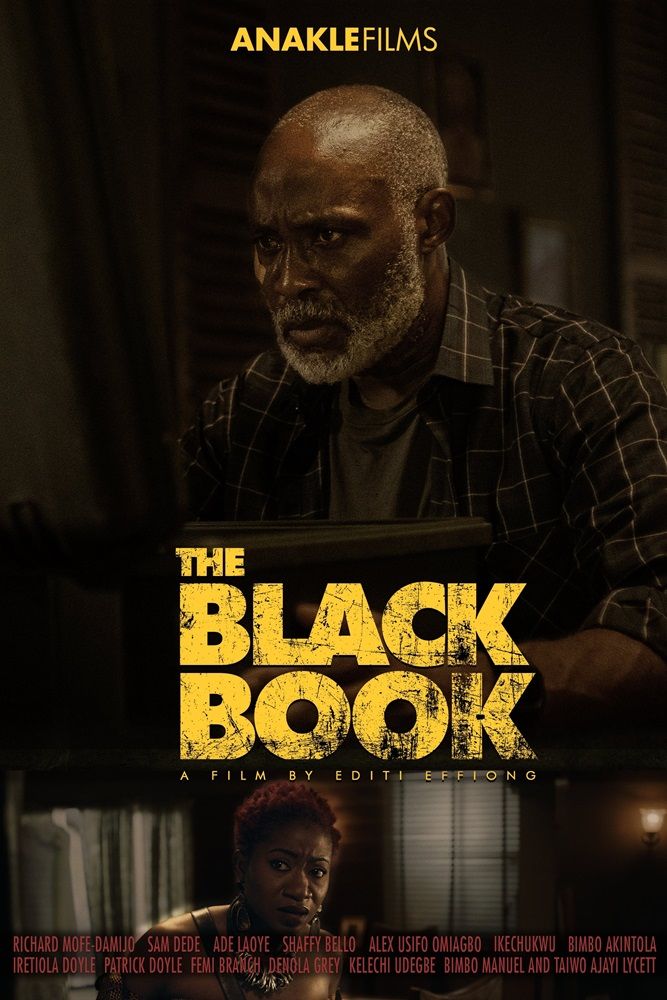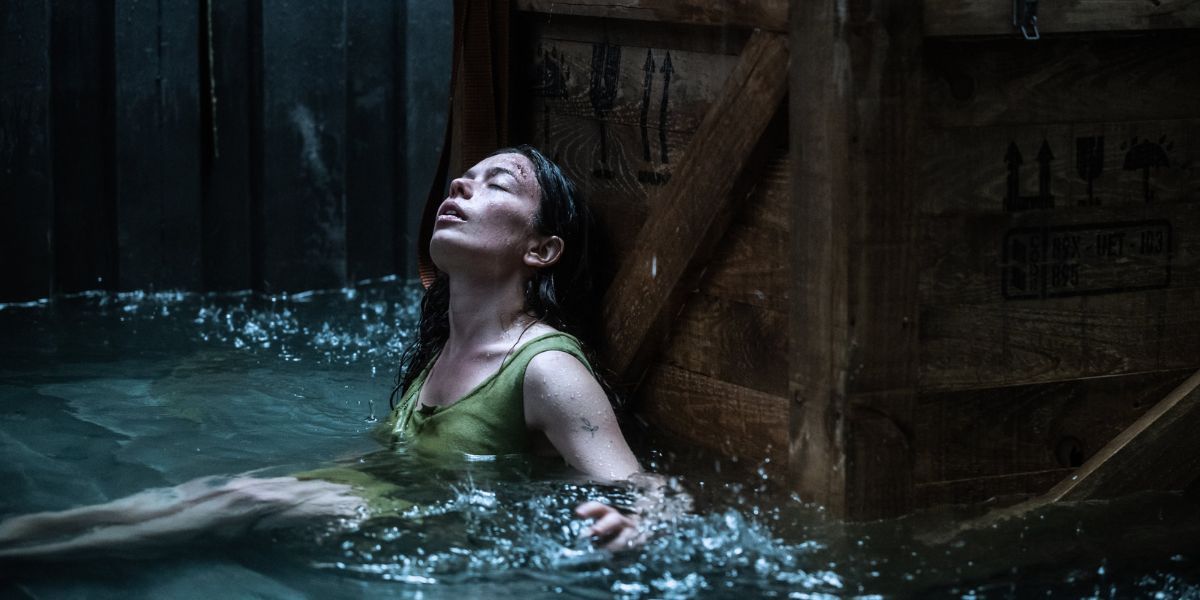Beyond being an action thriller, ‘The Black Book’ is a cultural safari.
The Big Picture
-
The Black Book
‘s reception on Netflix showcases the ability of Nigeria’s Nollywood industry to hold its own in the world of cinema. - The film stands out for its authentic cultural context, avoiding the “Hollywood trap” of disregarding environmental and cultural settings.
- The movie tackles themes of corruption and power struggles in Nigeria, providing a realistic depiction of how these issues are practiced and ingrained in society.
The Black Book took Netflix by storm upon release. It was one of the platform’s top trending movies in several countries and gained quite a traction among American film enthusiasts. Wonder what kind of film it is? If you have seen John Wick or Pierre Morel‘s Taken, Editi Effiong‘s The Black Book will be a journey down memory lane. Director Editi Effiong does well in his debut feature to show that Africa’s largest movie industry, Nigeria’s Nollywood, can hold its own in the world of cinema. But what sets The Black Book apart is its authentic cultural context in its storytelling. Some films tend to fall into the “Hollywood trap,” where filmmakers want to produce films in Hollywood’s style without considering the environmental and cultural settings of their stories, thus depriving them of a cultural context. Other Hollywood filmmakers have also, sometimes, adapted international films without paying much attention to the original cultural contexts for which they were written. The results are often films that are lacking in believability, even if the stories are relatable. The Black Book is not such a film.

The Black Book
After his son is framed for a kidnapping, a bereaved deacon takes justice into his own hands and fights a corrupt police gang to absolve him.
- Actors
- Richard Mofe-Damijo, Ade Laoye, Sam Dede, Alex Usifo, Ireti Doyle, Shaffy Bello,
- Director
- Editi Effiong
- Release Date
- September 22, 2023
- Run Time
- 124 mins
- Studio
- Netflix
What Is Netflix’s ‘The Black Book’ About?
Starring many of Nollywood’s A-list actors, The Black Book is a movie that reintroduces African action cinema to the world. Perhaps the most successful African film on Netflix, The Black Book is about power, revenge, corruption, and redemption, with elements of religion, but not in a preachy way. The film follows Paul Edima (Richard Mofe-Damijo), a retired soldier-mercenary-turned-deacon whose son, Damilola (Olumide Oworu), is framed for the kidnapping of anti-corruption crusader Professor Stella Craig’s (Bimbo Akintola) husband and son. Paul decides to take the law into his own hands and fights the powerful mastermind gang and the corrupt police to absolve his son of his alleged crime. The Black Book is a film with a strong premise that immerses you in its characters.
Other notable Nollywood actors the film stars include Nigerian-American actress Ade Laoye as Vic Kalu, a principled journalist determined to expose the evil in her society, Alex Usifo Omiagbo as General Issa the main villain, and Shaffy Bello‘s portrayal of Big Daddy with her all-female army of baddies. Big Daddy’s character plotline, in particular, brings a breath of freshness to the film, reminiscent of the ancient West African all-women army that inspired Gina Prince-Bythewood‘s The Woman King.
The ‘Black Book’ Doesn’t Hold Back on Its Depictions of Nigerian Corruption
While The Black Book tackles global themes such as corruption, it is not just another film about them. It is a film that will transport you to how corruption takes place in this part of the world. Unlike in other films where corruption is often a low-key shabby-place affair with loaded suitcases exchanging hands quietly, in The Black Book, bribery is loud. So loud that you see security operatives take money as bribes on public roads without an iota of shame or discomfort. This is reflective of the authentic setting of the film itself. Set in Nigeria, the film mirrors how the vices it addresses are practiced there. Different from some other cultures, Nigeria’s and much of Africa’s corruption is conducted openly, and those who practice it have well-connected ties to higher offices that protect them.
The Black Book also does not shy away from showcasing Nigeria’s power struggles. The film’s society is run by power, and power is clearly defined in a hierarchical structure. Set in a country that has already had eight coup attempts (six successful) since its independence in 1960, with devastating effects, The Black Book shows that whoever holds power grips onto it with both hands. The film depicts the power dynamics between those in authority and those who are under that authority. Take, for instance, the relationship between the police officers in the film and civilians, and how the same is exercised between seniors and their subordinates at the workplace. It is a relationship of total submission to the boss — Oga oh! Such is the cultural authenticity that The Black Book brings to the world of cinema in the context of Nigeria.

Is Netflix’s ‘Nowhere’ Based on a True Story?
“I love you more than yesterday. But less than tomorrow.”
The Black Book escapes yet another trap that films made in multilingual societies often face. Instead of using English as the film’s original language, which is often the easier option (in terms of marketing reach) for many filmmakers, director Editi Effiong decided to have each setting dictate the language that would be used, much like a typical Nigerian setting. English in its pure Nigerian form is spoken by the upper class, even though indigenous languages are also thrown in once in a while. If you have seen the film already, you might remember Big Daddy wondering aloud whether the outnumbered and outgunned man her army had surrounded was “crazy” for still thinking he had a chance against them. She said the words in her indigenous language, which is a natural reaction you would get from most Nigerians in her societal class.
Editi Effiong Tells an Accurate, Authentic Story With ‘The Black Book’
Even in passing, the filmmakers showed elements of Nigerian culture and environment that inadvertently added to the film’s overall authentic feel. When you see the film, you are likely to remember the shirtless boy relaxed in a bossy manner who seemed to be in control of his shanty area. He is an “area boy,” a part of a street gang controlling that area, a common scene in Nigeria’s urban areas. You might also remember the young men enjoying Guinness beer on the streets. The street gun fights, which are also not uncommon in Nigeria, last shorter in the film than they often do in other similar films. This is a true reflection of such street fights, which filmmaker Taylor Sheridan has observed to last less than 30 seconds in real life. Details like this, in addition to its superb plotline, elevates The Black Book into a believable, authentic story.
While it isn’t perfect, The Black Book offers some tantalizing action sequences and has an immersive human story that hooks you to it. Editi Effiong’s extra step in telling the story authentically makes seeing The Black Book feel like an adventure in cultural exploration. The shared, powerful human story in the film effortlessly takes you through that cultural safari.
The Black Book is currently available to stream on Netflix in the U.S.
This article was originally published on collider.com


